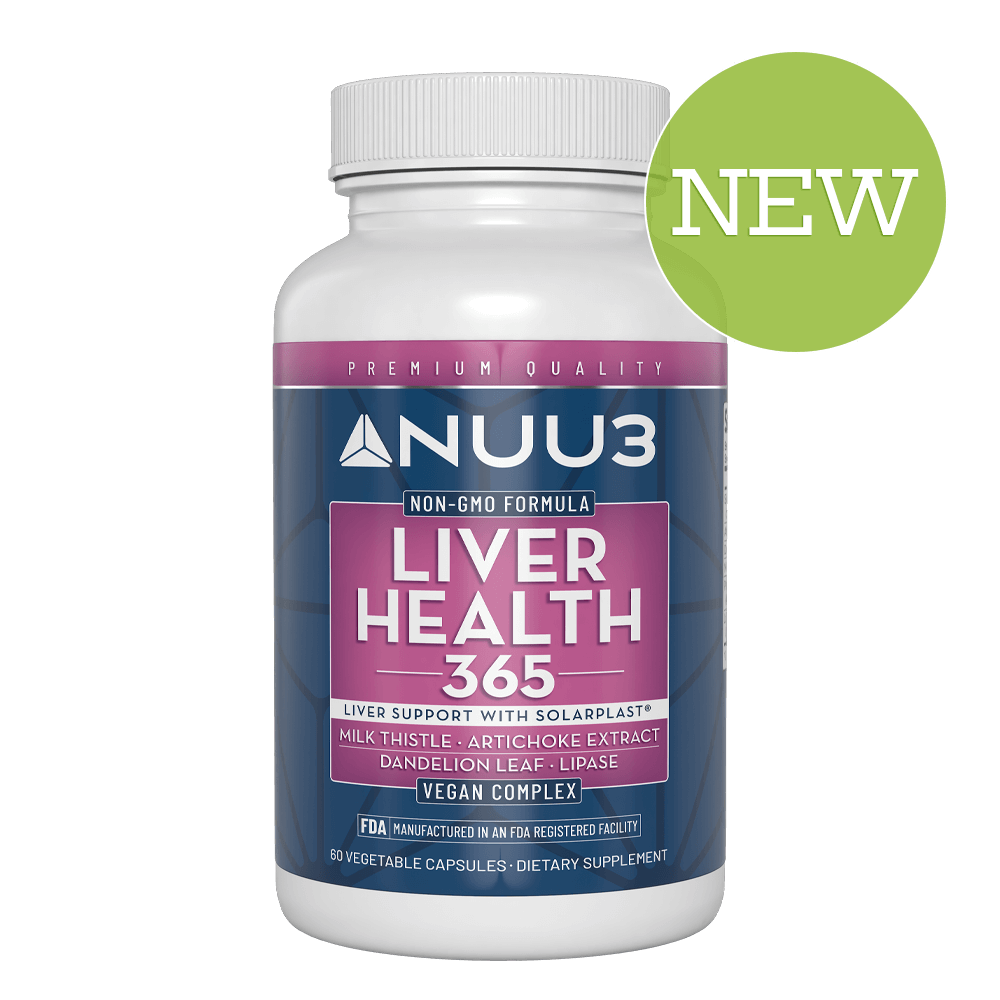Cancer is a prevalent disease that causes the death of millions each year. Different types of cancer can develop, including liver cancer. Recognizing the signs of liver cancer can aid in detecting this type of disease early on. In this guide, we’ll look at what liver cancer is, its different types, and the signs associated with it.
What is liver cancer?
Liver cancer is a type of cancerous disease that specifically affects your liver, a vital organ in your body. This disease arises when the cells within the liver undergo genetic mutations, leading to unregulated and abnormal growth.
The progression of liver cancer can significantly impact the liver's ability to carry out its essential functions. The liver plays a crucial role in various physiological processes such as fat digestion, glucose storage, and detoxification of harmful substances from the bloodstream.
Types of liver cancer
When looking at liver cancer, it’s important to understand that there are different kinds of these diseases[1] that can develop. These include:
-
Hepatocellular carcinoma: This is the most common form of liver cancer in the general population. It’s sometimes referred to simply as HCC. The cancer develops from hepatocytes, which are considered the main cells in your liver. It can develop due to lesions on liver, which can be a result of cirrhosis.
-
Cholangiocarcinoma: In this type of liver cancer, the disease originates from the bile ducts. It’s sometimes also called bile duct cancer. It’s not one of the more common forms, but still a cancer that you should be aware of.
-
Liver angiosarcoma: When you’re diagnosed with liver angiosarcoma, it means cancer starts in the blood vessels that are found in the liver. It’s one of the rarer liver cancers.
-
Hepatoblastoma: This form of liver cancer is mostly found in children. It’s usually diagnosed in children not yet two years old and is considered very rare.
Signs and symptoms of liver cancer
Some symptoms are commonly shared, such as a liver cancer skin rash. However, there are many symptoms that you may take for another disease that could be a sign of liver cancer. Let’s take a closer look at common symptoms that you should never ignore:
-
Feeling tired and weak
-
Unexplained weight loss
-
Pain that affects the upper right side of your abdomen
-
Your abdomen (stomach) may feel swollen when fluids start to build up
-
You may find that you don’t have an appetite
-
Your skin and eyes may become yellow, which is the result of a condition called jaundice
-
Your bowel movements may look paler than normal
-
Nausea, which may sometimes lead to vomiting
Symptoms associated with liver lesions can manifest gradually, underscoring the importance of promptly identifying and reporting them to your healthcare provider. By doing so, there is a greater likelihood of detecting the condition at an earlier stage, before it progresses into a more advanced and potentially serious form of cancer.
What are the causes and risk factors for liver cancer?
Understanding your risk factors and the elements that contribute to the development of liver cancer can be valuable. This knowledge empowers you to adopt specific preventive measures and proactive strategies. By recognizing these factors, individuals can take proactive steps to reduce the risk and enhance their overall health outcomes.
Let’s take a closer look at the causes and risk factors that research has linked to liver cancer:
- Chronic Heptatis C or Hepatitis B
- Heavy drinking
- Age (some liver cancers are more common in older people)
- Cirrhosis of the liver
- Obesity
- Smoking
- Having an alpha1-antitrypsin deficiency
What are liver cancer stages?
There are multiple liver cancer stages, going from 0 up to 4. Let’s take a closer look at them:
-
Stage 0: The first stage of liver cancer. During this stage, the tumor that the cancer cells cause measures smaller than two centimeters in diameter.
-
Stage A / 1: Stage one is still considered early liver cancer. It’s when there are three small tumors or one that still measures under five centimeters in diameter.
-
Stage B / 2: Your liver is functioning properly by stage two, but you have multiple tumors that have formed on the organ.
-
Stage C / 3: By the third stage, the cancer has begun to spread to nearby lymph nodes and blood vessels. The cancer may have also started to affect other organs. Your liver is still functioning in this stage.
-
Stage D / 4: This is when the liver cancer has become severe. The liver has suffered a lot of damage. It’s considered end-stage liver cancer.
How is liver cancer diagnosed?
The initial imaging tests commonly employed to evaluate liver health and detect potential cancerous growths include ultrasound, computed tomography (CT) scans, and magnetic resonance imaging (MRI) scans. Each of these imaging modalities offers unique advantages in visualizing different aspects of the liver, such as size, shape, and the presence of any irregularities or masses.
Ultrasound utilizes sound waves to create detailed images of the liver and surrounding structures, providing a preliminary assessment of liver health and identifying areas of concern that may require further investigation. CT scans involve specialized X-ray equipment to produce cross-sectional images of the liver, offering a comprehensive view that helps in detecting abnormalities like tumors or lesions.
MRI scans, on the other hand, use magnetic fields and radio waves to generate highly detailed images of the liver and surrounding tissues. This imaging technique can be particularly valuable for assessing the characteristics and extent of suspected lesions or tumors within the liver.
In certain situations, where there is a need for more detailed evaluation, additional imaging tests such as bone scans or positron emission tomography (PET) scans may be recommended. A bone scan can help detect whether liver cancer has spread (metastasized) to the bones, while a PET scan utilizes a radioactive tracer to highlight areas of increased metabolic activity, aiding in the identification of cancerous lesions elsewhere in the body.
By leveraging these advanced imaging technologies, healthcare providers can gather comprehensive information about the liver's condition, identify potential signs of liver cancer, and develop an informed diagnostic and treatment plan tailored to each individual's needs. The precise and thorough evaluation facilitated by these imaging tests is essential for achieving accurate diagnoses and optimizing patient outcomes in the management of liver cancer.
In addition to understanding risk factors, doctors may order specific blood tests to aid in the diagnostic process of liver cancer. If your healthcare provider identifies lesions or growths on your liver during an examination, they might suggest a liver biopsy as part of further evaluation and diagnosis. This procedure involves obtaining a small sample of liver tissue for detailed analysis, which can provide critical information for determining the nature of the abnormalities observed.
How is liver cancer treated?
If you have cancerous lesions on liver, then your doctor will first do a few tests. After the diagnostics process, they will recommend treatment based on the stage and severity of the disease.
Treatment may involve:
-
Chemotherapy is sometimes combined with radiation therapy. In this case, it’s called combination therapy.
-
Targeted drug therapy.
-
Intra-arterial therapy.
-
Radiofrequency ablation.
In some cases, a liver transplant can also be considered a treatment option, especially with hepatocellular carcinoma. Liver cancer prognosis largely depends on when it is found and how early you get treated.
Prevention is also key, which is why taking NUU3 Daily Multivitamin Gummies can be helpful. This supplement helps to give your body the nutrients it needs to maintain optimal health.
Some supplements focus specifically on your liver, such as the NUU3 Liver Health 365. It’s easy to use and contains natural ingredients that support overall liver function.
Implementing positive lifestyle changes is pivotal in preventing liver cancer and enhancing the body's ability to respond effectively to treatment. One key aspect is adopting a diet with liver detox foods that can significantly optimize liver function and overall health.
Liver detox foods support the liver's natural detoxification processes and promote optimal functioning. These include foods high in antioxidants, such as berries, leafy green vegetables, and cruciferous vegetables like broccoli and Brussels sprouts. These foods help combat oxidative stress and reduce inflammation, which are important factors in maintaining liver health.
Once treatment has started, it’s important to keep your body healthy. A supplement like the NUU3 Nature’s Superfuel can help boost your energy and support your immune system.
FAQs
Is stage 1 liver cancer curable?
The survival rate for stage 1 liver cancer is quite high. Over 45% of people[2] diagnosed with stage 1 liver cancer survive for four years or longer. The chances of survival are much higher compared to a more advanced cancerous disease, like stage 4 liver cancer.
How does liver cancer start?
Mutations in the DNA of liver cells can lead to the uncontrollable growth of cancerous cells. This causes tumors to form, which then results in liver cancer.
Can liver cancer be cured?
It’s possible to treat liver cancer. The earlier the diagnosis, the greater the chances of successfully treating this disease. A complete cure for liver cancer is usually possible during stage A or 0.
Can you survive liver cancer?
Yes, many people can survive liver cancer. However, it’s important to understand that the chances of survival decline the more liver cancer progresses, which is why it’s important to detect and treat it early on.
Outlook
Liver cancer is a serious disease, but with early diagnosis and the right treatment, the survival rate can go higher than 50%. It’s important to be aware of the initial signs of liver cancer, which can help you detect it before it spreads to other parts of your body.
References
1] ↑ https://www.cancerresearchuk.org/about-cancer/liver-cancer/types
2] ↑ https://www.cancerresearchuk.org/about-cancer/liver-cancer/survival











